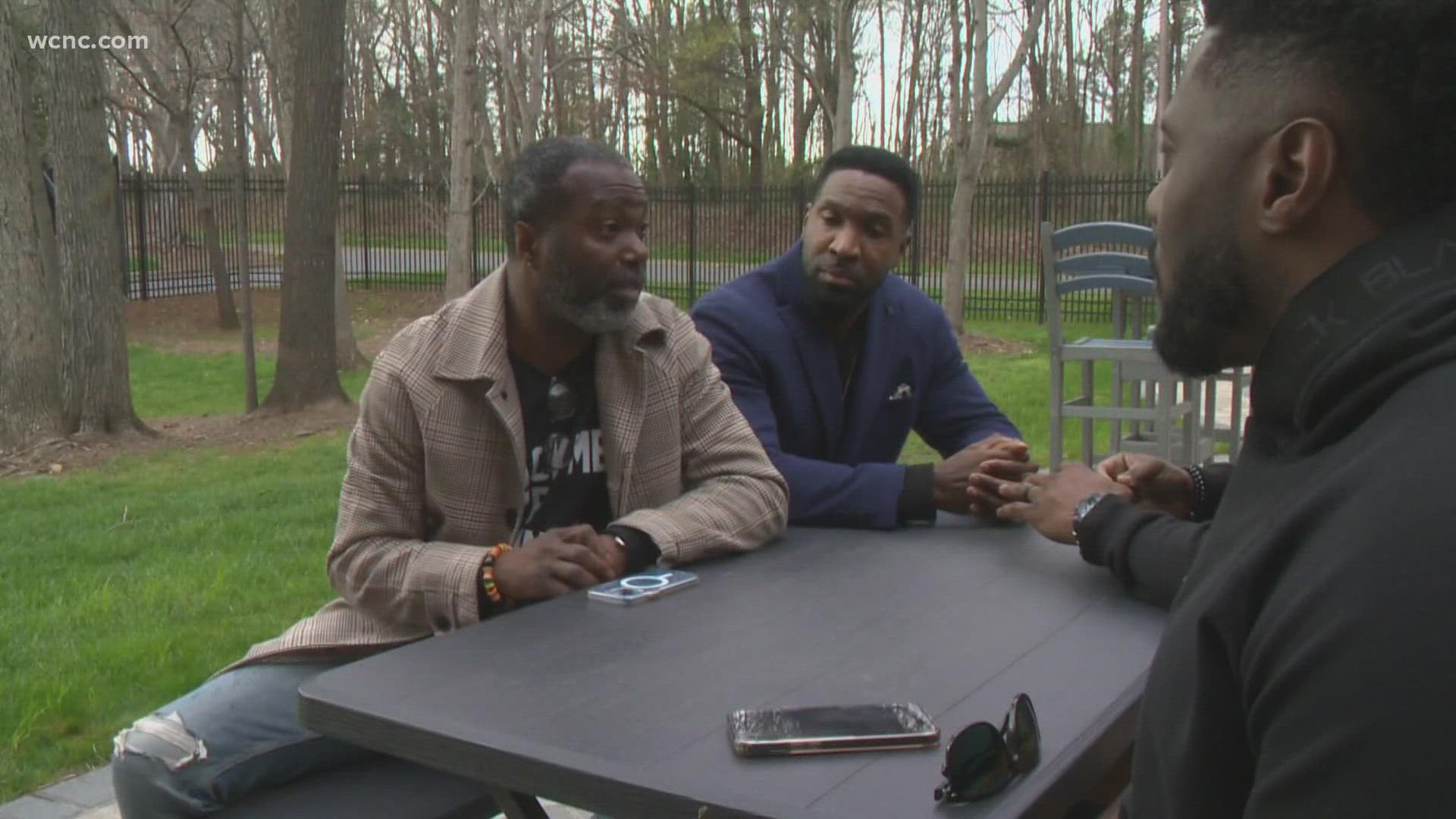CHARLOTTE, N.C. — The conversation around gun violence in Charlotte sometimes centers on violent crimes like murder or robbery. The CDC reports three out of every 10 deaths with a gun were homicides, but six out of every 10 deaths with a gun were suicides.
A roundtable tour centered on Black men's mental health is coming to Charlotte Friday. They will speak openly about mental health's connections to curbing violence and suicides, among other things.
Talking about mental health can come with a stigma, especially among Black men, but the group is looking for a change.
“We are each other’s greatest assets," Lawrence Adjah, a community builder and panelist on the Just Heal Bro tour, said.
The national tour will stop in Charlotte at the Sarah Belk Gambrell Center for the Arts and Civic Engagement on the campus of Queens University.
Registration is free and only open to men.
The tour focuses on educational programming that they say will foster healing journeys through experiential and clinical dialogue as well as contextual and culturally responsive solutions.
“Who's protecting us, and why shouldn't it be important to everybody, you know, for us to be just as safe and thriving, just as well if you know and equal to everybody else," Lamman Rucker, an actor, activist and panelist, said.
A study published by the Journal of the American Medical Association (JAMA) reports adolescent males and Black males have experienced the highest increase in suicide attempts between 1991 and 2019.
“I think that is surprising to the world," Jay Barnett, an Author, Life Coach and co-organizer of the tour, said. "When you think about the corner that we've had to sort of exist in as Black men and not really having a safe space, and not even being viewed as an individual in certain circumstances, right?"
CDC data shows Black men don’t account for the highest amount of suicides with a gun, but they do disproportionately account for most gun homicides in America.
Protecting the lives of Black men can start with mental health.
“During the pandemic, it was one of the times that many brothers said, 'Man, I feel like we've got more -- we get received more empathy in death than we do in life,'" Adjah said.
On top of stigmas, there are financial and disparity issues that prevent Black men from seeking help.
WCNC Charlotte is always asking "where's the money?" If you need help, reach out to WCNC Charlotte by emailing money@wcnc.com.
“Once people get over the stigma of mental health, especially Black and brown people, then you have to do the hurdle of can I afford it?" Oshan Gadsden, a panelist, and assistant professor of psychology at Norfolk State University asked. "But even after that, can I afford it? Are there Black and brown clinicians that are culturally competent, that are available?"
The group wants to reach whoever they can before it’s too late.
“We know we're world-changers, we know we're game-changers, sometimes that's why people don't prioritize us," Rucker said. "But that's at the same time exactly why they should."
Contact Shamarria Morrison at smorrison@wcnc.com and follow her on Facebook, Twitter and Instagram.
If you or a loved one are facing thoughts of suicide or self-harm, there is help readily available. You can call The National Suicide Prevention Lifeline at 800-273-8255 or chat with them online. There are also resources in North Carolina available here and in South Carolina available here.
There are also several resources available for Black men seeking help, some of which offer free and discounted therapy: Therapy for Black Men, Black Men Heal, Free Black Therapy and the National Alliance on Mental Illness (NAMI).

